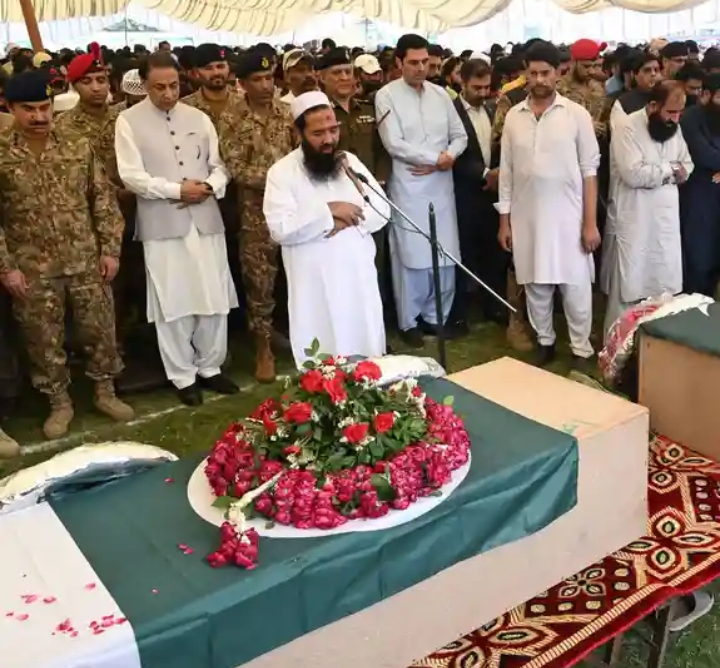India's strikes on Pakistan last week killed 51 people, including 40 civilians. The strikes were in retaliation for an attack on Hindu tourists in April. After intense fighting, a US-brokered ceasefire was implemented. Both sides expressed commitment to it, but tensions remain high, with India warning of retaliation for future terror attacks.
Pakistan Reports Over 50 Killed in India Clashes Last Week


Pakistan's military reported on Tuesday that 51 people were killed in Indian strikes last week, which included 40 civilians and 11 armed forces members. The previous official death toll from Pakistan had been 33 civilians with no military losses. The strikes were part of a response by India to an attack in April on Hindu tourists in India-administered Kashmir that killed 26 people. India launched the strikes targeting what it described as "terrorist infrastructure" sites in Pakistan and Pakistan-administered Kashmir.
Following the airstrikes, India and Pakistan engaged in a series of tit-for-tat missile and drone strikes into each other's territories. However, after several days of escalating tensions, a US-brokered ceasefire was negotiated over the weekend. According to India, at least five military personnel and 16 civilians had died during the clashes.
Despite both sides claiming violations of the ceasefire in its early days, the agreement seemed to largely hold on Tuesday. Senior military officials from both India and Pakistan communicated through a hotline on Monday to evaluate the situation and ensure the implementation of the ceasefire.
India's military issued a statement confirming that the discussions between the two sides had included a mutual commitment to refrain from firing any shots or initiating aggressive actions.
Indian Prime Minister Narendra Modi, in his first public response since the ceasefire was announced, stated that India had only "paused" its military actions. He also warned that India would retaliate if there were any further terror attacks, saying, "If Pakistan wants to survive, it will have to destroy its terror infrastructure."
In response, Pakistan's Foreign Ministry expressed its continued commitment to the ceasefire. Meanwhile, India's Air Chief Marshal AK Bharti stated that Indian forces were "ready to undertake any further missions, should the need arise." He added that India’s conflict was "with terrorists, and not with Pakistan’s military or its civilians."
On Tuesday, India's military reported that three suspected militants were killed in a gunfight with Indian forces in India-administered Kashmir.
The attack in April, which killed 26 people, was claimed by a group called the Kashmir Resistance, which India identifies as a front for Lashkar-e-Taiba (LeT), a UN-designated terrorist organization. India has accused Pakistan of supporting the attack, although Pakistan denies the accusation. Both countries claim full control over Kashmir, but each administers only a portion of the region, making it a major flashpoint for their ongoing tensions.
The recent attacks and subsequent fighting represent the most intense escalation between India and Pakistan since the 1999 Kargil conflict. US President Donald Trump took credit for helping broker the ceasefire, stating that Washington's intervention prevented a "bad nuclear war."

 বাংলা
বাংলা  Spanish
Spanish  Arabic
Arabic  French
French  Chinese
Chinese 
